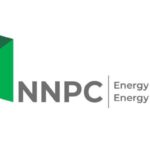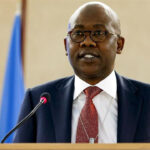
The current fuel scarcity in Nigeria has challenged Mr. Maikanti Baru’s position as Group Managing Director (GMD) of the Nigerian National Petroleum Corporation (NNPC) and also tested his leadership qualities at a critical moment, a moment in which, due to some economic factors, the NNPC is the sole importer of Petroleum Motor Spirit (PMS). Though it is a temporary situation, but the eyes of Nigerians and President Muhammadu Buhari are fixed on the NNPC to wet the entire nation. It is a tough task for the NNPC to solely stabilize fuel supply with optimum availability across the country, but it is attainable.
Most observers in the oil and gas industry sympathize with both President Buhari, who himself is the Minister for Petroleum and Baru. Baru, whose strides in the downstream sector within one year have brought impeccable achievements, now has those achievements being over shadowed by fuel scarcity during a festive season, in which demand is high and many Nigerians travel. Most Nigerians have forgotten that the long period of stability in fuel supply the Buhari administration achieved was possible through NNPC’s modest refining efforts; the revised Direct Sale of Crude Oil and Direct Purchase of Products (DSDP) programme and the re-commissioned Aba, Mosimi, Atlas-Cove and Kano depots.
Fuel scarcity in Nigeria easily irritates most Nigerians; it also puts any NNPC GMD on the edge of his or her seat. Acute scarcity of petroleum products in Nigeria dates back to the early days of oil production in the country. It tends to be frustrating to know that many factors are responsible for the scarcity of petroleum products; however it placates that the feasible and lasting solution is always simple but often difficult to implement due to their complicated political nature. 2018 is practically a year for politicking, no government hoping for a re-election would take a gamble, certainly. Baru and his team know this.
The Buhari administration was lucky to have taken some stringent decision concerning the downstream sector of the oil and gas industry without any public backlash, with Buhari’s integrity and honesty being responsible for the public understanding.
Baru’s doggedness to resolve the fuel scarcity has brought fruitful results as the queues in Abuja and Lagos have shrunk, while other parts of the country are witnessing improvement. But Mr. Baru has more challenges ahead – to sustain the achievements as well as offer the nation a feasible, lasting and easy to ‘swallow solution’. Though, any solution that Baru proffers requires political and economic endorsement of both the executive and legislative arms of the government. Baru is very fortunate; an insider in the presidency informed this writer that President Buhari has confidence in and tremendous respect for Baru’s competence.
Nigerians already know some of the short and long terms solutions to the recurring fuel scarcity- continued massive importation by the NNPC which is unarguably expensive and unsustainable; re-introduction of the subsidy regime which is corruption prone; complete liberalization or deregulation which comes with high prices, public backlash and job losses, while construction of new refineries and rehabilitation of the existing ones are capital intensive and an extremely time consuming process.
Zayyad I. Muhammad, Jimeta, Adamawa State.



